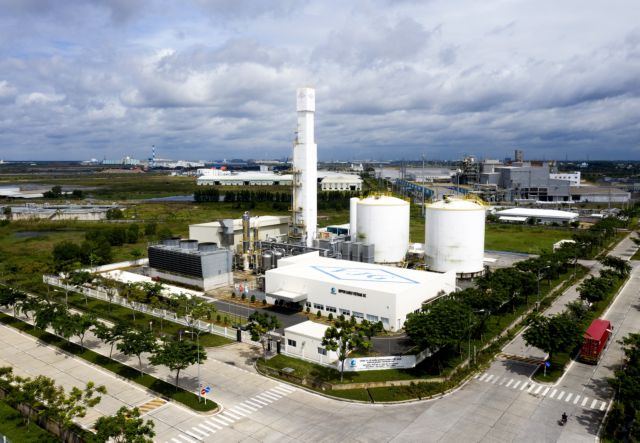 Economy
Economy

 |
| Phú Mỹ Industrial Park in Bà Rịa - Vũng Tàu Province. The impact of the global minimum tax adaptation must be studied carefully to ensure the attractiveness of the investment climate.. — VNA/VNS Photo Hồng Đạt |
HÀ NỘI — National Assembly Deputies agreed that Việt Nam needs to develop new incentives to remain attractive to foreign direct investment (FDI) when the global minimum corporate income tax is adopted.
Deputy Chairman of the National Assembly Nguyễn Đức Hải said at the NA discussion on Monday that a majority of NA Deputies strongly agreed on the issuance of an NA’s resolution following shortened procedure on the application of top-up tax in accordance with OECD’s global anti-base erosion model rules.
However, it would be necessary to develop incentives to continue attracting FDI, he said, adding that the impact of the global minimum tax adaptation must be studied carefully to ensure the attractiveness of the investment climate.
The global minimum tax is a pillar two of OECD’s two-pillar solution to address the tax challenges arising from the digitalisation of the economy, which will impose a minimum tax rate of 15 per cent on multinational enterprises (MNEs) that have consolidated revenues of 750 million in at least two out of the last four years.
More than 100 countries and jurisdictions joined the framework, including Việt Nam, many of which start to adopt the global minimum tax from the beginning of next year.
According to the General Department of Taxation, the adaptation of the global minimum tax would help increase budget revenue by around VNĐ14.6 trillion per year. Some 122 MNEs investing in Việt Nam would be affected by this policy.
The adaptation would not only help increase tax revenue but also promote the international integration of Việt Nam as well as reducing tax evasion, avoidance and transfer pricing, Deputy Điều Huỳnh Sang from Bình Phước Province said.
However, it would significantly undermine the attractiveness of the investment climate of Việt Nam which is heavily reliant on tax incentives to attract FDI.
Vũ Tiến Lộc from Hà Nội NA Delegation said that the adaptation of the global minimum tax would have huge impacts on the attraction of strategic investors to Việt Nam, especially in the context of increasingly harsh competition in FDI attraction.
Together with the issuance of a resolution on top-up taxes, it would be necessary to issue another resolution on incentive policies to maintain an attractive investment climate towards the goal of promoting high-quality capital inflow into Việt Nam and complying with international commitments and integration trends, Lộc said.
The new incentives should ensure fairness to every enterprise, Lộc said, adding that the influx should be directed to sectors of priority such as high-tech industry, environmentally friendly industry, research and development, and renewable energy, he said.
Nguyễn Quang Huân from Bình Dương NA Delegation said that the Government needed to have a comprehensive evaluation of the impacts of the global minimum tax and propose policies to promote the development of part-supplying industries.
Promoting the development of the part-supplying industries was the most important solution to retain FDI and enable Việt Nam to participate in the global value chain, he said.
The Finance – Budget Committee said in a report that measures should be raised to avoid and handle disagreements in collecting taxes on MNEs with other countries, including an information exchange mechanism.
Minister of Finance Hồ Đức Phớc said that international integration required Việt Nam to be proactive in amending the regulations in accordance with international requirements and socio-economic development.
Regarding the worry that MNEs could opt to pay taxes in their home countries rather than in Việt Nam, Phớc said that the process of paying taxes in their home countries might be more complicated and costly. The Vietnamese tax department would provide support to facilitate tax payments in Việt Nam, he said.
After the NA issues the resolution on global minimum tax, the Ministry of Finance would work with 122 enterprises subject to this policy, Phớc said. — VNS